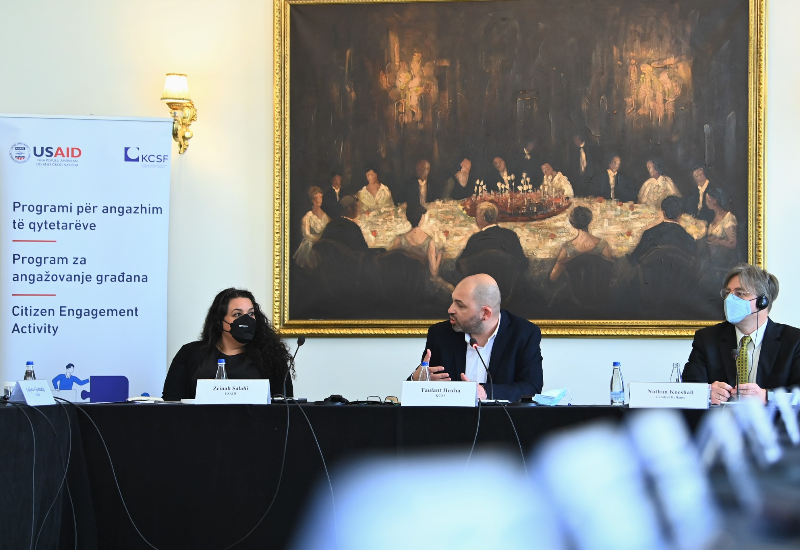The first Informal Philanthropy Forum was held yesterday in Prishtina, in order to pave the way for a systematic discussion on issues and actions aimed at a more favorable legal and practical ecosystem for local philanthropy.
We are aware that complex social issues can not be resolved in isolation and the cooperation of local communities, civil society, businesses, and government institutions is needed to address them.
Designed to be a platform for dialogue and action between civil society organizations, citizens, the private sector, and public institutions, as well as to foster cross-sectoral partnerships and strengthen trust, the Informal Philanthropy Forum transcends boundaries between each group.
Yesterday's forum brought together representatives from business associations, private companies, civil society networks, philanthropists, and relevant public institutions that want to lead change and increase influence in building a better society.
The forum was opened through a greeting word from Mr. Taulant Hoxha, Executive Director of KCSF, who spoke about the role of the Philanthropy Forum, as well as the achievements of civil society in democratization and development of society, through donor support
"Although civil society and businesses in Kosovo have often addressed issues related to the community, they have done so in parallel and separately and without proper communication between themselves. The model we are aiming at is a model based on trust and the creation of a legal and practical framework that guarantees an ecosystem for Philanthropy in the country, which will be strategic and oriented for the development of the country", he said.
Zeinah Salahi, USAID Mission Director in Kosovo, addressed the Forum participants, stating that “The Philanthropy Forum, the first of its kind in Kosovo, is an important milestone in the engagement of the private sector in socially conscious investments. Global philanthropy serves as an important partner in addressing the social and economic issues that build strong, citizen-led democracies."
The director of the Catalyst Foundation, Mr. Nathan Koeshall, one of the implementing partners in the Civic Engagement Program, presented throughout the Forum, the framework with regional perspectives and data on Philanthropy.
"What we know from the data available from the region is that local philanthropy is growing and is growing steadily in Kosovo and throughout the region since 2015. This means that there is a greater opportunity for companies and non-profit organizations and governments to build partnerships, small and large that can impact social change, with a medium and long-term perspective. And this is something that evokes emotion and reason for us all to celebrate", he said.
The Informal Philanthropy Forum will build a more diverse and dynamic community of partners, through the systematic discussion of issues and actions that will lead to a more favorable legal and practical ecosystem for local philanthropy in Kosovo society. In addition, the Forum, through its resources and great influence within the Kosovo community, aims to raise awareness of the importance that strategic and oriented philanthropy can have in the Kosovo community and beyond.
ABOUT THE CIVIC ENGAGEMENT PROGRAM
The Civic Engagement Program (CEA) in Kosovo aims to support Civil Society Organizations (CSOs) to build constitutions, expand their resources and partner base, and influence change by linking different actors around development solutions, arising from the local level, and increasing government accountability.
CEA is a five-year program supported by the United States Agency for International Development (USAID) in Kosovo, and implemented by the Kosovo Civil Society Foundation (KCSF).
CEA will contribute to the achievements of the project through the following objectives:
- Objective 1: Strengthen the ties of civil society with their constitution, activate the community, and increase the demand for accountability;
- Objective 2: Establish cross-sectoral partnerships and increase trust between Civil Society Organizations, citizens, the private sector, and public institutions;
- Objective 3: Capacity building of Civil Society Organizations, and a regulatory and training environment to mobilize alternative domestic and diaspora resources.


Leave a comment